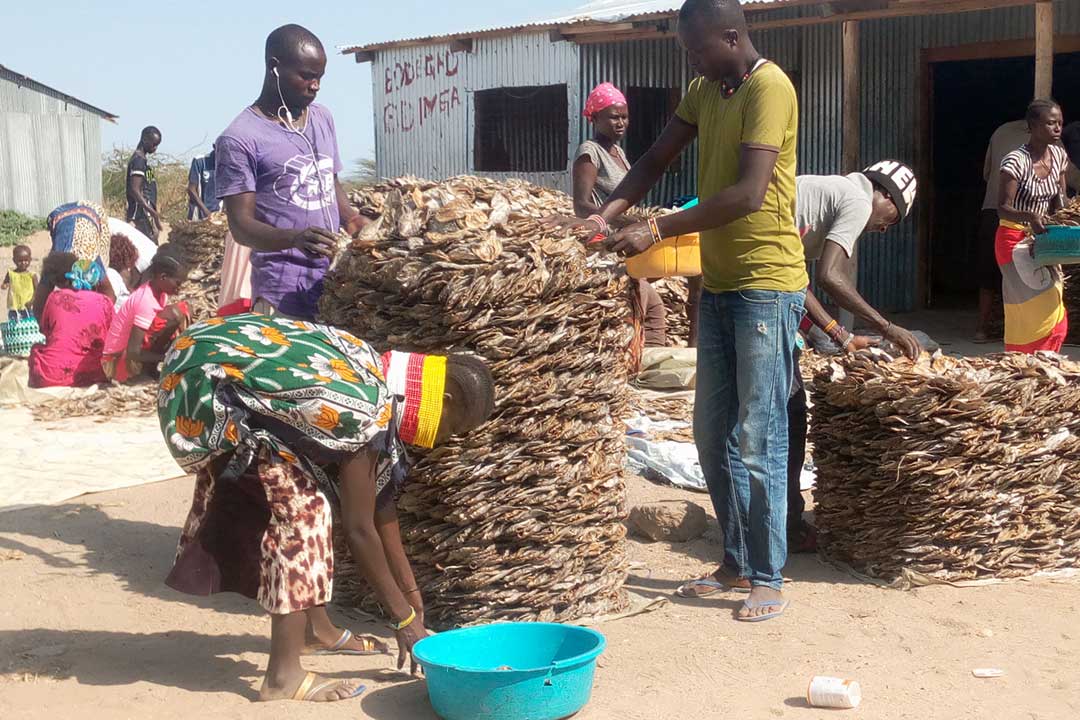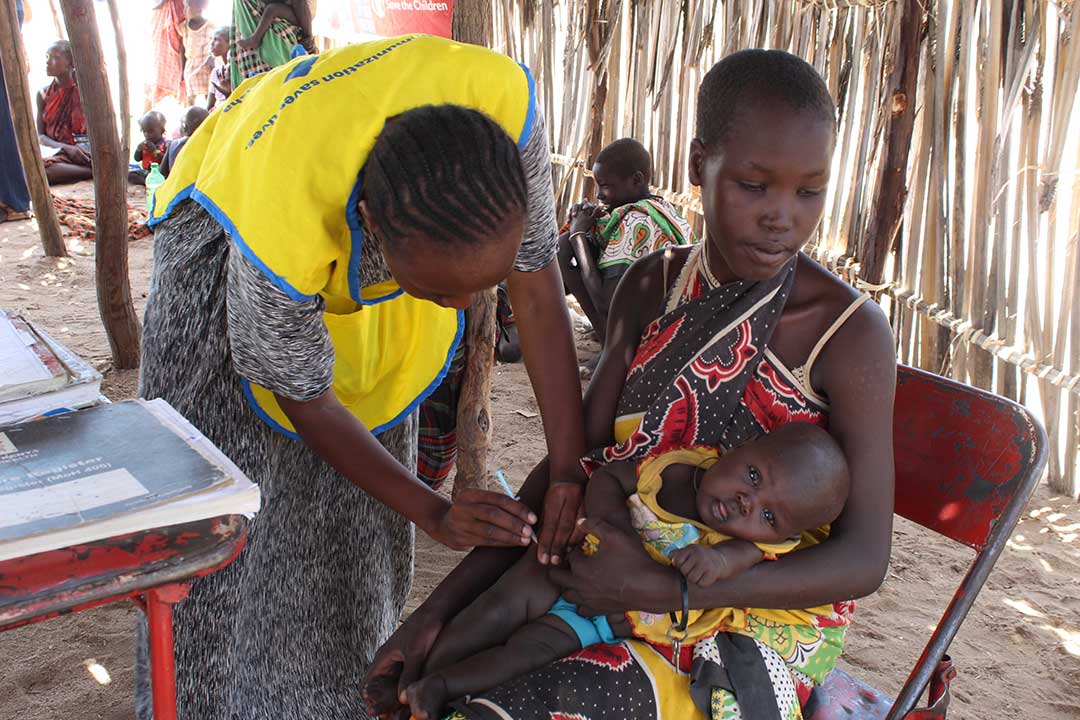Safari doctors take to the waters to save lives in Kenya
Lamu County islands are accessible only by boat. Getting health services to them is a unique challenge.
- 11 July 2022
- 5 min read
- by Abjata Khalif
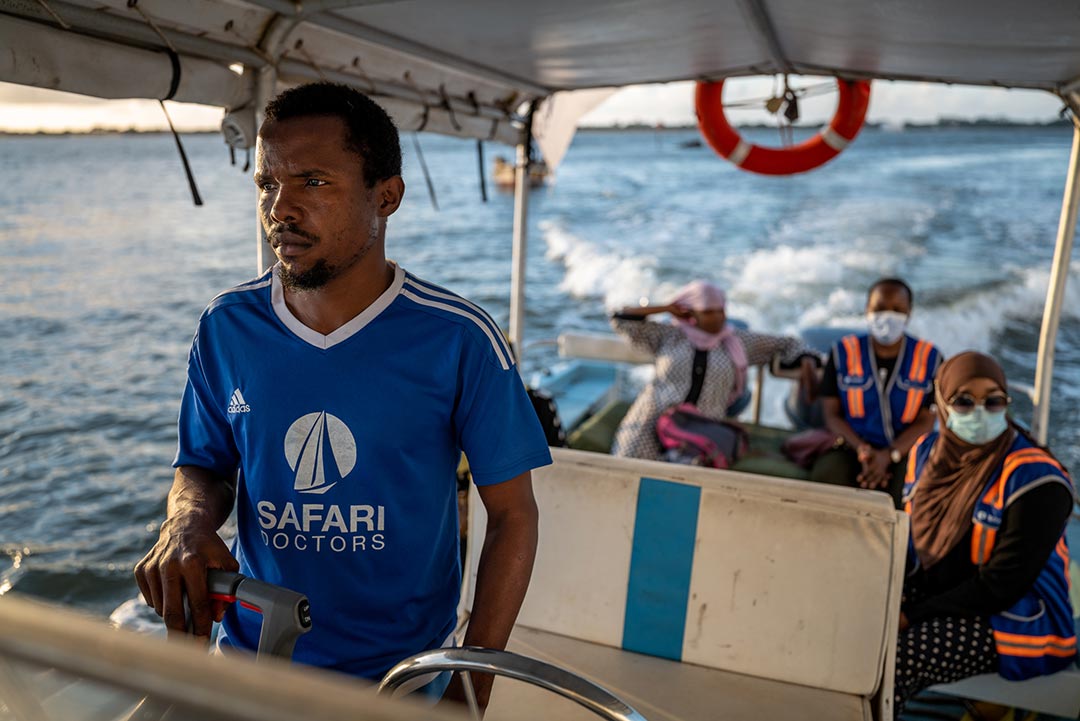
On the Kenyan coastal island of Pate, a group of elders and young volunteers gather under a tree to discuss tide forecasts. They are preparing for an excursion to get vaccines and other vital health services to the island.
“Safari Doctors is the only lifeline we have on Faza island. Their youth health ambassadors gave us education and awareness on COVID-19, followed by a vaccination drive that reached all far-flung islands in Lamu County.”
Pate, in the north-eastern coastal county of Lamu, is bestowed with glassy blue water. Its population knows that travel between the islands is completely dependent on the tides. The forecasts are important, but the team planning this trip combine it with some local knowledge.
This pre-planning will ensure the smooth landing of medical boats laden with medical supplies, vaccines and specialised medical personnel to attend to the remote population.
Apart from the local health governance meeting, youth health ambassadors ensure there are lists of all health problems, the number of unvaccinated children and any special health conditions that need attention from specialist doctors. They also offer continuous health education, undertake referral requests, supply reproductive products and, in some instances, offer basic health services.
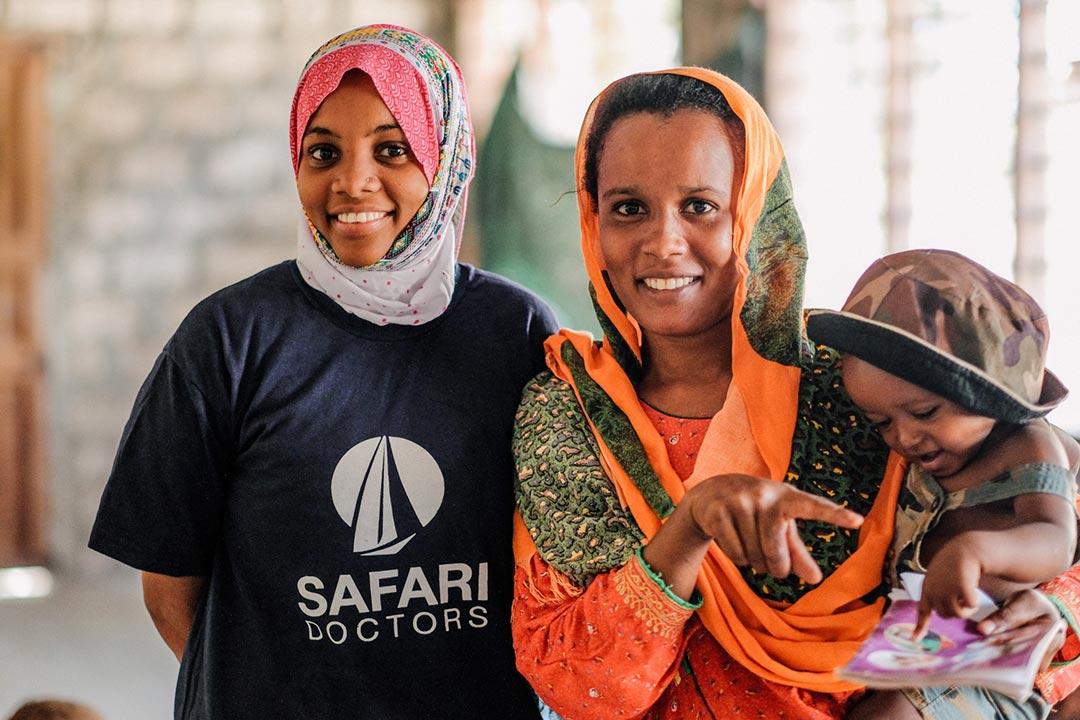
Credit: Tojo Andrianarivo
Youth health ambassadors hail from local communities and understand the area and the people. Their involvement makes it easier to mobilise the communities and register cases.
“Youth health ambassadors, who are trained and resourced by Safari Doctors, act as a bridge between the communities and the visiting medical voyage. Through them, the volunteer doctors know how many cases they will attend to and the number of specialised cases to handle,” says Munira Hassan, a resident of Shanga village in Pate Island.
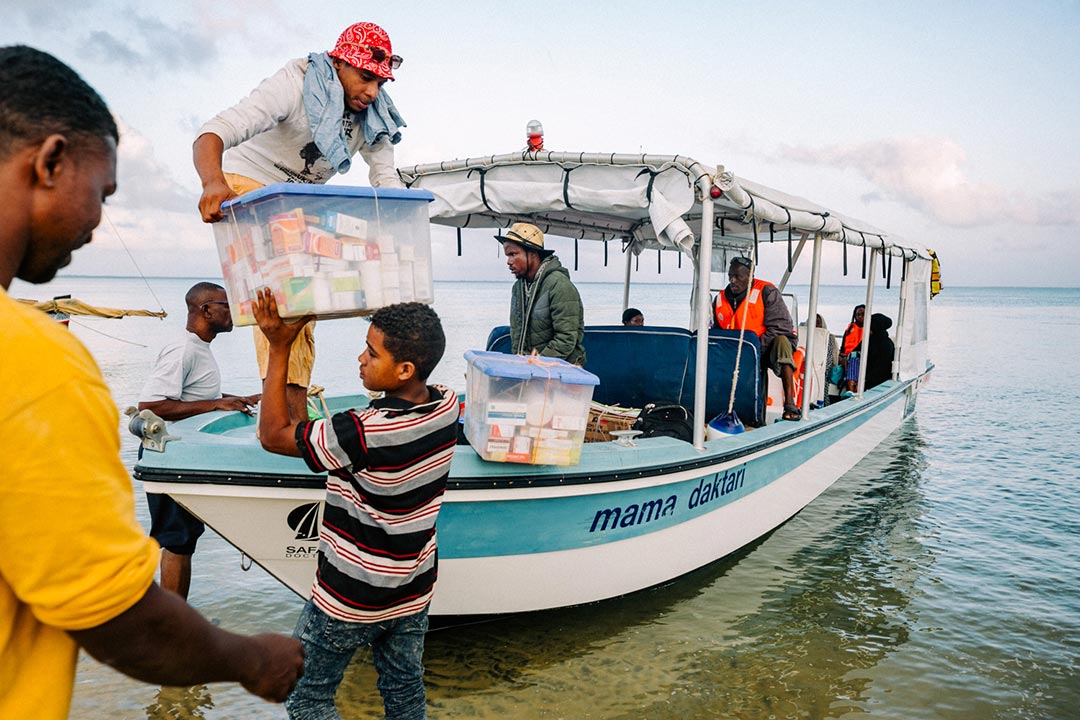
Credit: Tojo Andrianarivo
Community members also get continuous health education and awareness from the health ambassadors, who have also played a key role in spreading accurate COVID-19 information and mobilising communities for COVID-19 vaccinations, which the local health authority then administer, hopping from island to island.
“Safari Doctors is the only lifeline we have on Faza island. Their youth health ambassadors gave us education and awareness on COVID-19, followed by a vaccination drive that reached all far-flung islands in Lamu County,” says Hassan Sharifu of Ndau Island.
Since 2016, Safari Doctors have been seeking out and vaccinating zero-dose children on the islands. “All my children were immunised by the Safari Doctors. I depend on their services as the only clinic in our village is not operating,”
The only mode of transport between the islands and the mainland is either a speedboat or dhow, which can become costly for residents who already spend a big portion of their income on transport to, for example, travel to the Lamu archipelago where the main health referral hospital is located.
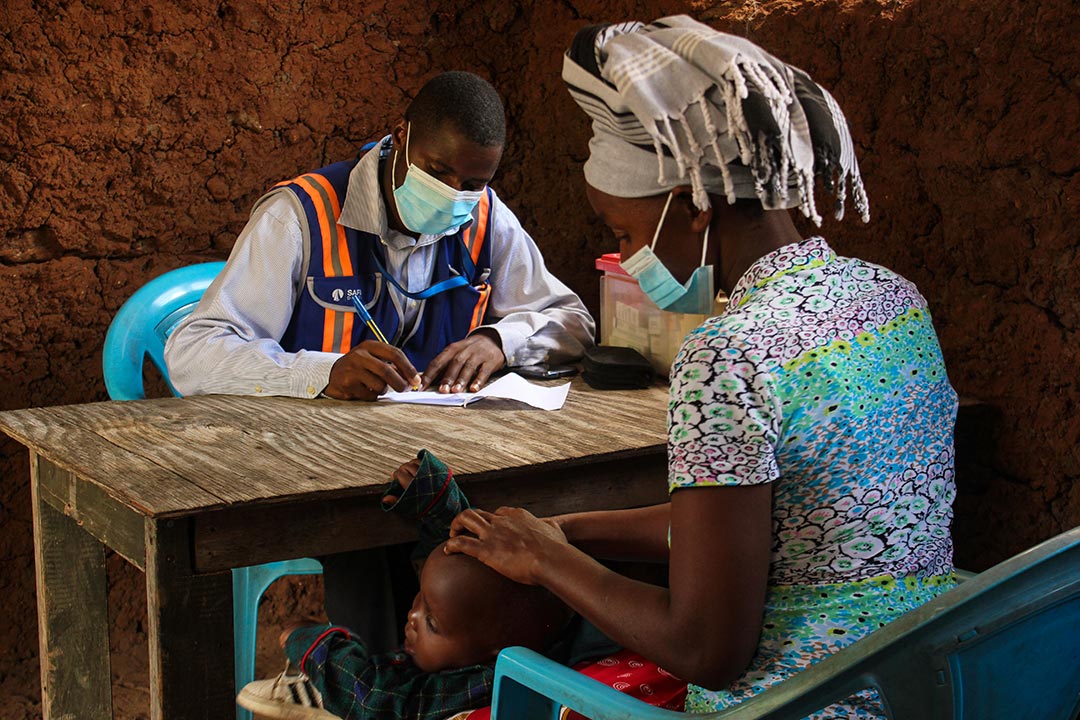
Credit: Shanga Nzole
“It’s very expensive to transport patients from a far-flung island to Lamu County hospital, thus making healthcare expensive,” says Aboud Shebe, a Pate island resident.
The impact of the island’s remoteness from standard health facilities shows in the statistics: according to the Kenya National Council for Population and Development (NCPD), Lamu is one of six counties with the highest burden of maternal deaths in the country.
Have you read?
Safari Doctors, a non-profit community-based social enterprise, is filling the gap, using boats and dhows to deliver medical and primary health care services, provide sexual reproductive rights, education and products, conduct specialised medical operations and, recently, offer islanders COVID-19 education, PPE and vaccines.
The organisation serves up to 2,000 people a month, with the majority of its clients hailing from the Lamu islands and areas near the border with Somalia.
Services offered to the islanders inhabiting the remote but pristine islands are key as the majority of health assets on the islands are in a decrepit state and there is a serious lack of essential drugs and equipment.
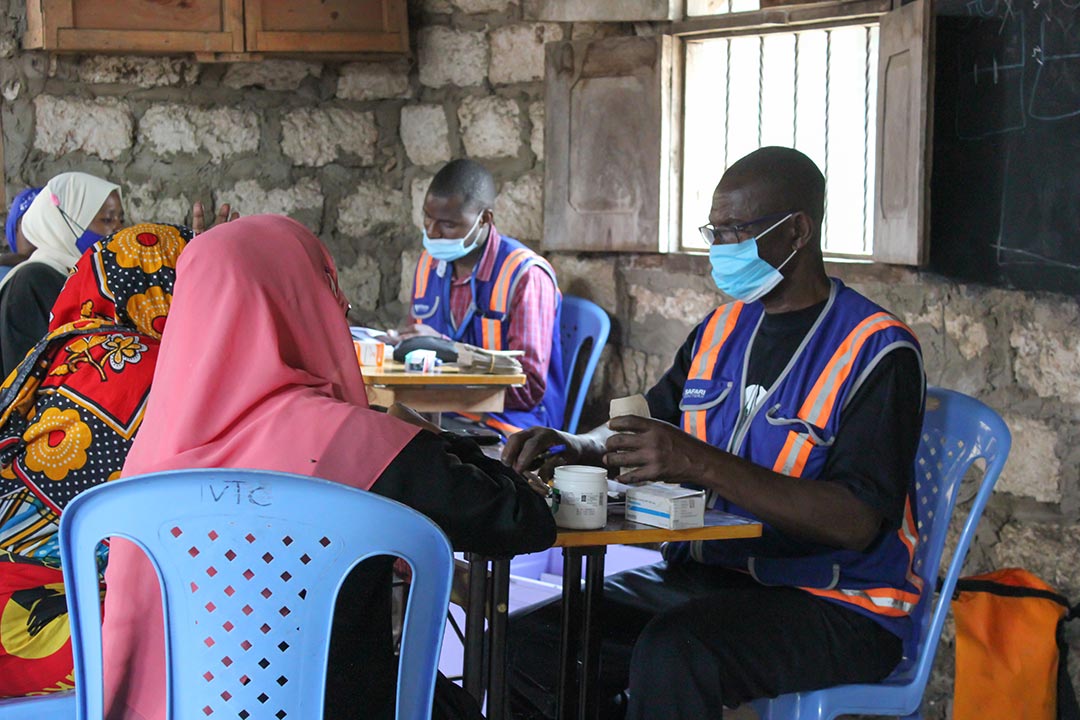
Credit: Shanga Nzole
The Safari Doctors serve all of Lamu and visit each of the region's islands once a month. As well as the services they deliver, they leave behind a small army of young health volunteers. So far, they have reached islanders inhabiting ten far-flung Lamu islands: Faza, Pate, Kizingitini, Kiwayu, Mkokoni, Ndau, Kiangwe, Matondoni, Manda and Siyu.
Amina Mohamed, the head of the Youth Health Ambassadors, says, “Safari Doctors’ mobile clinics operate on a timetable and each marginalised community knows when to expect the medical voyage. Currently the mobile clinic covers up to 24 villages per month.”
On Pate Island, Lamu County, the local youth health ambassadors and community members throng the landing site as Safari Doctors boats carrying volunteers, doctors and medical supplies approach the island.
Their arrival, as always, is accompanied by jubilation. The community ensure that they maximise the access they have to the services, including assisting the youth health ambassadors in setting marked areas for each medical service, such as routine immunisation.
Since 2016, Safari Doctors have been seeking out and vaccinating zero-dose children on the islands.
“All my children were immunised by the Safari Doctors. I depend on their services as the only clinic in our village is not operating,” says Asha Madi
Whether it is tackling misinformation and providing health education in Lamu County, providing routine immunisation and general medical services or vaccinating against COVID-19, Safari Doctors are ensuring that the islands aren’t forgotten.
